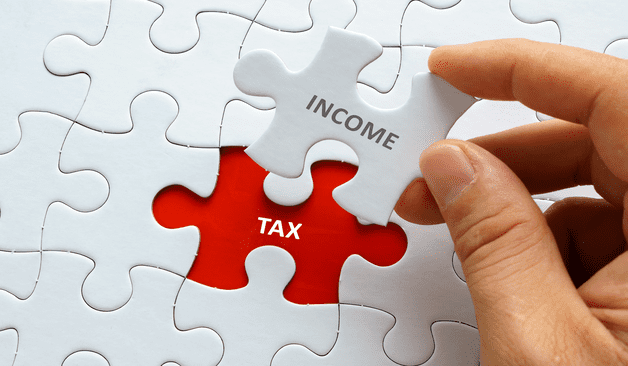
Does it make sense to shift to new income tax regime?
There are various differences between Old Tax Regime and New Tax Regime
- Those in the lower tax brackets with no major investments can benefit from new tax regime
- Those who avail of all the tax deductions under Sections 80C, 80D and others may benefit in old tax regime
- Compare the options to assess which one is more beneficial for you
Despite the high anticipation with which individual taxpayers were looking at Budget 2022, the income tax rules remained mostly unchanged. This means that taxpayers still have the choice between the old and the new tax regimes.
This choice becomes especially relevant when seen from the prism of level of taxable income and investments. Both tax regimes offer advantages.
Who Can Benefits From The New Tax Regime?
The new tax regime has lower tax rates for incomes that fall between Rs 5 lakh to Rs15 lakh. Therefore, those taxpayers who don’t fall in the higher tax slabs can benefit from the new tax regime.
The new tax regime can be used by those who do not have major investments that offer tax benefits. For example, taxpayers who have recently joined the workforce may not have the need for large investments or expenses such as home loan or children’s tuition fees. Similarly, senior citizens may not need investments such as Public Provident Fund (PPF) or Employees’ Provident Fund (EPF) for retirement planning and would therefore benefit from choosing the new tax regime.
When Is The Old Tax Regime A Better Choice?
Many investments and expenses have to be made to meet requirements of life and health insurance, wealth creation, buying a house, retirement planning, and more. The tax benefits attached to these instruments makes them even more attractive. So, those taxpayers who have such investments can choose the old tax regime and reduce their tax outgo.
Also Read: All about Income Tax in India: Basics, tax slabs and e-filing process
How To Make The Choice
Start by looking at the tax slab that you fall in and then see the quantum of investments and expenses.
Step 1. Tax slabs:
If income is up to Rs5 lakh per annum, tax rates in both regimes are the same (nil till Rs2.5 lakh and 5 per cent from Rs2.5 lakh to Rs5 lakh). The difference starts at incomes above Rs5 lakh till Rs 15 lakh. If your income is between Rs 5 lakh and Rs 7.5 lakh per annum, the income tax rate is lower at 10 per cent in the new tax regime (20 per cent under the old tax regime). Similarly, those earning between Rs 7.5 lakh and Rs 10 lakh would pay lower tax at the rate of 15 per cent under the new tax regime compared with 20 per cent under the old regime. If your income is Rs10 lakh-12.50 lakh, then too the new tax regime is better with 20 per cent (30 per cent in the older regime). In the slab of Rs12.5 lakh to Rs 15 lakh, the tax rate is 25 per cent (30 per cent in the older regime). For income above Rs15 lakh, tax rate is the same in both regimes.
Step 2. Quantum of investments that come with tax benefits:
Individuals/HUFs opting to pay tax under the new income tax regime will have to forego almost all tax breaks they are claiming in the current tax structure like Section 80C (investments in PF, NPS, life insurance premium, principal repayment on home loan, etc), medical insurance premium, tax breaks on HRA, LTA and on interest paid on housing loan.
The tax difference for the taxpayer with income of Rs 15 lakh in the current and proposed tax regime, without any deduction comes to around Rs 78000 excluding cess. Therefore, if the total amount of deduction (Chapter VI-A + Housing Loan Interest+ HRA + LTA + Self NPS + Mediclaim + standard deduction etc.) currently claimed by the assesse is more than Rs 260000 (for 30% tax bracket assesse, 30% of Rs 2.6 lakh is Rs 78000) and 390000 (for 20% tax bracket assesse, 20% of 3.9 lakh is Rs 78000), tax payers are better off staying in the old tax regime. If otherwise, they are better off shifting to the new tax structure.
Disclaimer – ICICI Securities Ltd. ( I-Sec). Registered office of I-Sec is at ICICI Securities Ltd. - ICICI Venture House, Appasaheb Marathe Marg, Prabhadevi, Mumbai - 400 025, India, Tel No : 022 - 6807 7100. The contents herein above shall not be considered as an invitation or persuasion to trade or invest. I-Sec and affiliates accept no liabilities for any loss or damage of any kind arising out of any actions taken in reliance thereon. The contents herein above are solely for informational purpose and may not be used or considered as an offer document or solicitation of offer to buy or sell or subscribe for securities or other financial instruments or any other product. Investments in securities market are subject to market risks, read all the related documents carefully before investing. The contents herein mentioned are solely for informational and educational purpose.










